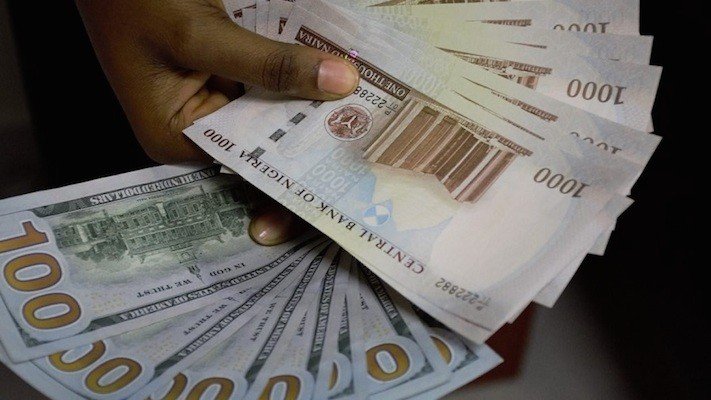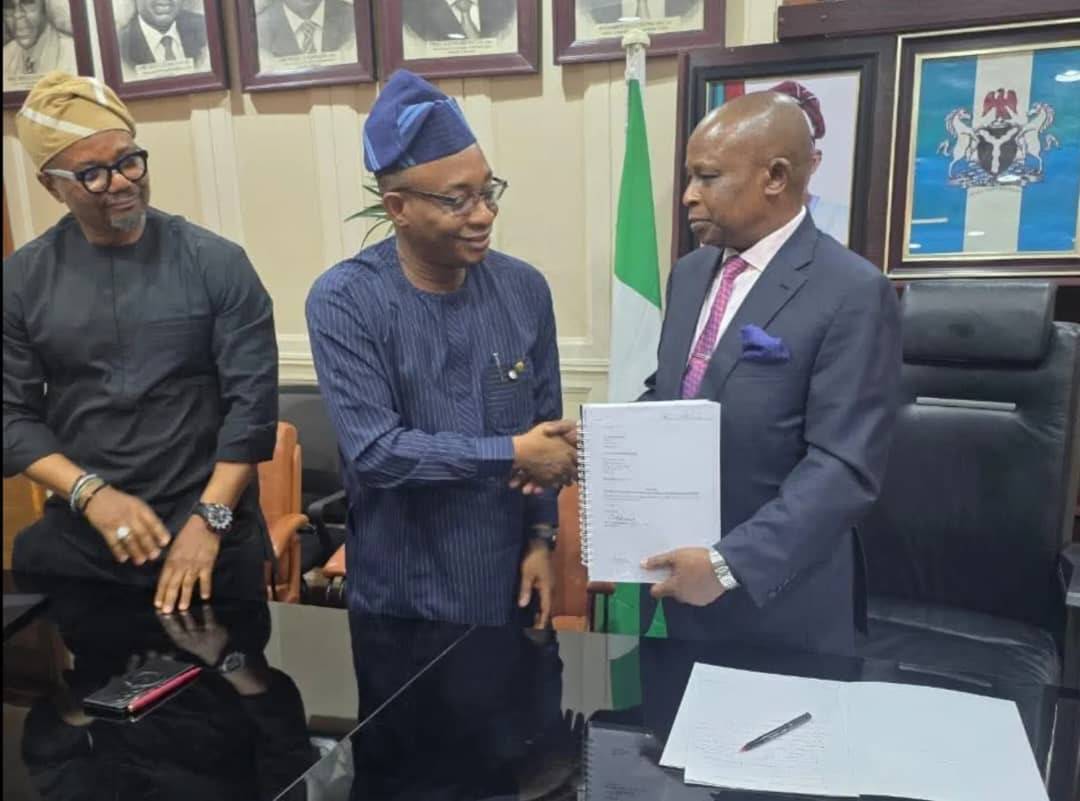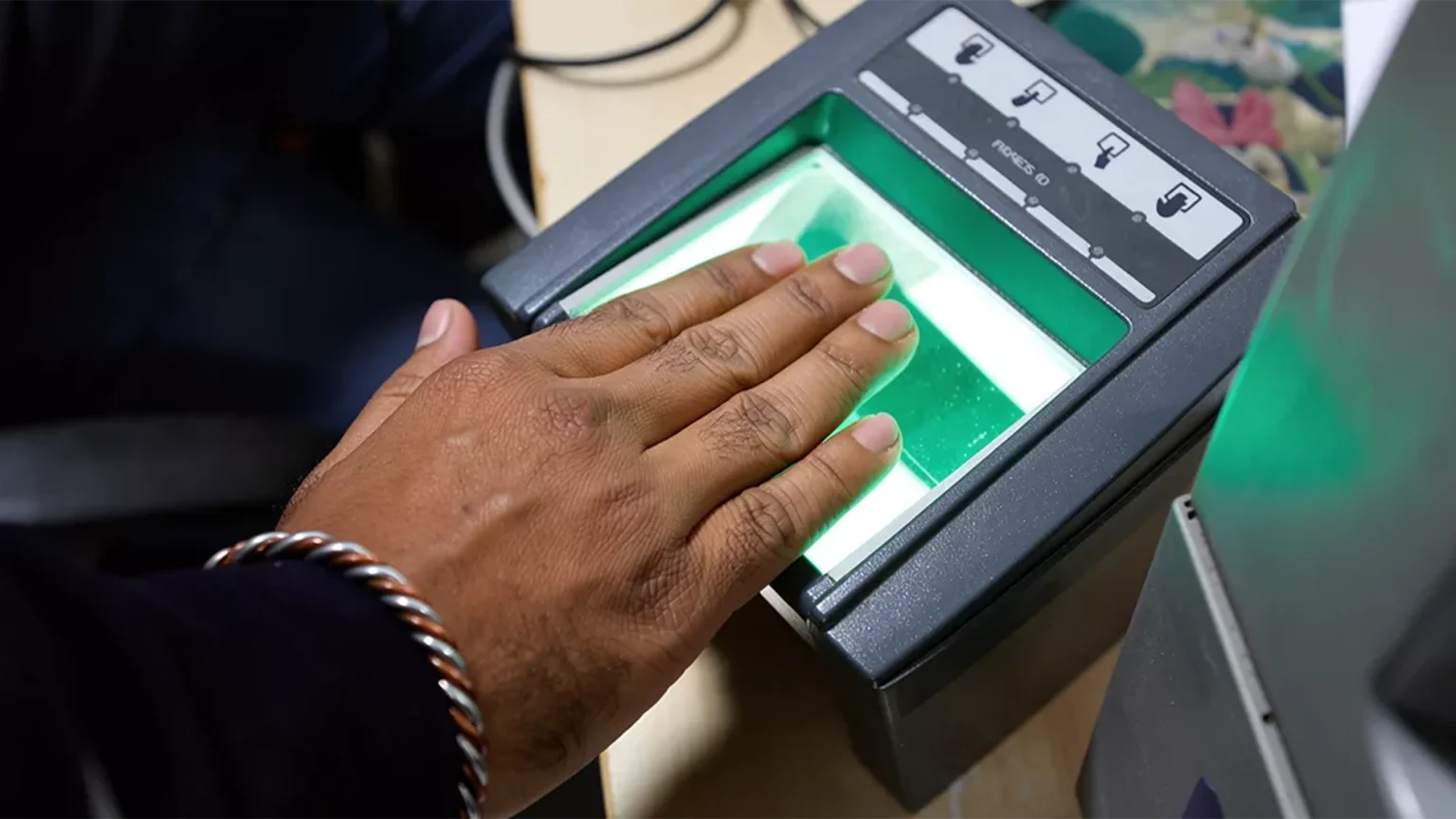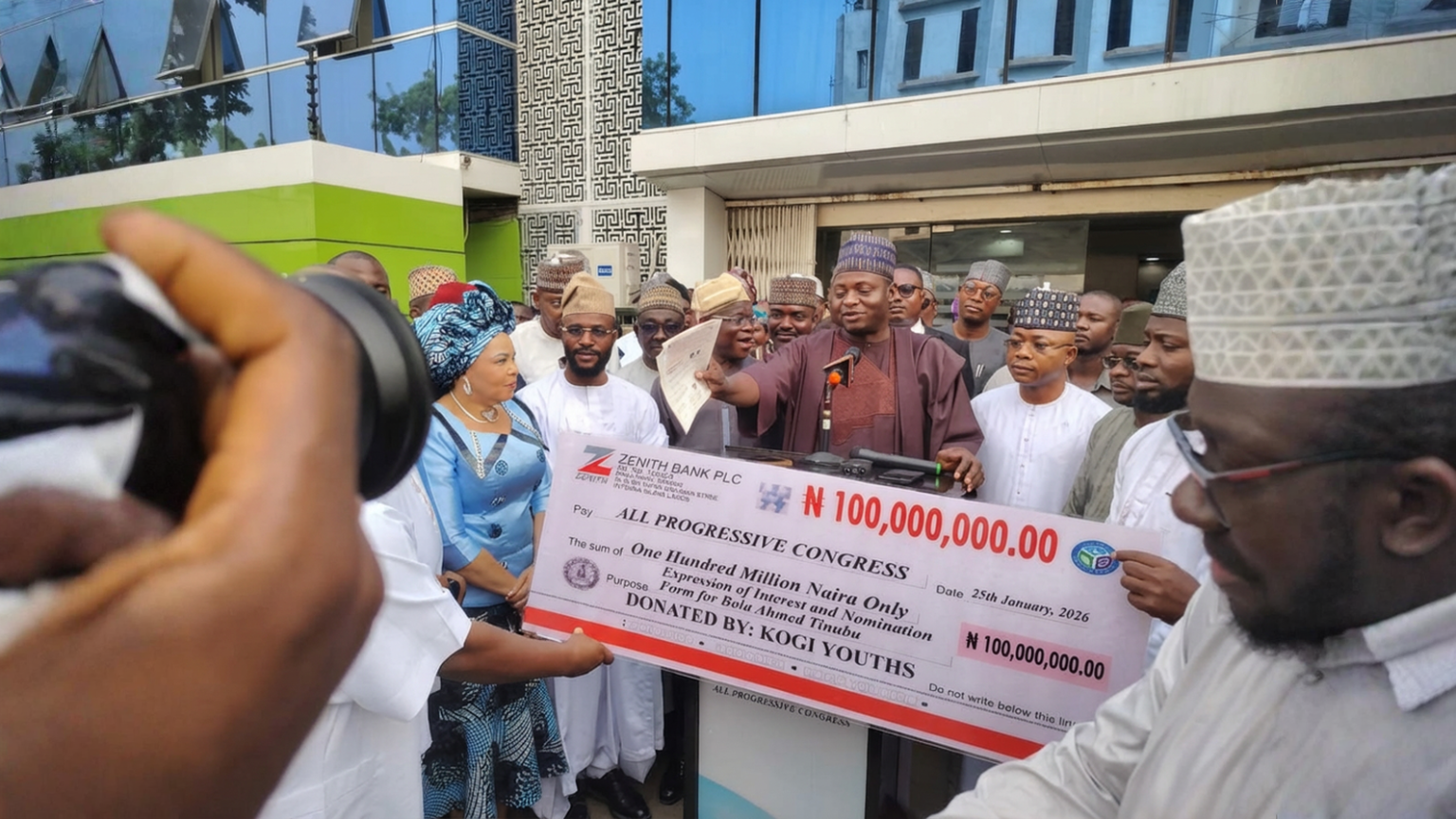By Femi Onakanren
The single hottest topic in Nigeria at the moment is the galloping FX rate. This revered index is often positioned as the single most important economic reference data to judge everything in the country. Everyone is concerned about the value of the Nigerian Naira to foreign currencies, particularly the United States Dollar.
The rate is known to everyone from the most educated to the middle class, to the middling, surviving, and barely comprehending lowest class. Ask the local micro trader why prices are changing, and you hear, “do you know what the Dollar to Naira is today?”.
The Naira has become a secondary currency in a country and economy on which it has sovereignty. The Nigerian obsession with the FX rate is inordinate and ridiculous. This is also compounded by the extreme ignorance in the system and the rabid politicization of a matter of urgent national importance.
A core tenet of solution creation is to first understand the nature of the problem. Proper diagnosis means that chances of correcting and healing, and thus survival, recovery, and prosperity, are much higher.
I have also read with amusement many opinions about how good the Nigerian Naira was compared to the US Dollar in the past. This has been a painful amusement as the vast majority by this singular jaundiced and delusional nostalgic opinion confirmed a poor grasp of the issues under discussion.
The 1980s and 1990s were not golden eras. The 1970s was a period of waste, ambitious but uncoordinated vision, and poor management. Incidentally, these periods were largely under military rule, which should be instructive to the many uninformed who pine for the delusional ‘good old days’.
The first thing to understand is that as a country, we were not over-reliant on imports for everything. We even had vehicle assembly plants in the country. We had functional industries across different sectors meeting local demands. We largely ate and lived mostly on what we had, and the larger population lived within their means. Our mooted giant of Africa status was founded more on potential than actual leveraged productivity.
However, the dependence of consumption and wealth we produce largely explained why the demand for FX was not inordinate.
This writer once worked with a former chairman of MAN, Lagos Chapter, who recanted how he converted his US Dollar to Naira on relocating to Nigeria in 1981 in an act of patriotism. This would be considered madness nowadays.
In 1984, the FX rate was $0.75 to NGN 1. In nominal terms, the Naira was more valuable than the US Dollar. In fact, the Great Britain Pounds was the only revered currency, and this exchanged at £1.08 to NGN 1.
However, people were still suffering during these periods. The illusion that everyone was ruddy-cheeked and singing kumbaya is belied by the reality of coups and counter coups, all claiming to be fighting for the suffering masses. The advent of each coup was usually celebrated by the people. This little fact debunks the perennial misinformation that things were OK during those days. They weren’t. Rice that we consider a staple now was a luxury during those years.
Between 1984 and 1994, the Naira was devalued by almost 30 times its value (1984; $0.75/NGN 1, 1994; $1/NGN 21.89). Within this period, power got worse, public infrastructure slipped into decay, corruption became entrenched and endemic, appetite for foreign goods increased, and the economic schizophrenia bloomed. We went from producing locally and consuming our products to developing a taste for foreign stuff. The power sector was sabotaged, the oil sector was sabotaged, health, education, manufacturing, and every sector entered ICU.
The country slipped into a period of intensive rent taking based on crude oil revenues and markets for the different aftermath effects of the multifaceted sabotage blossomed.
The reader should recall that during this entire period, fuel, power, and others were subsidized. Even religious travel was subsidized! The exchange rate at 1994 submitted above was the official pegged figure. The newly empowered black-market rate was more than 4 folds of the value. This marked the first institutionalization of arbitrage and round tripping, the easiest money-making business ever conceived by mankind. This racket was even more profitable than the NNPC petroleum products lifting allocation racket!
The military era between 1984 and 1998/99 when democratic governance resumed marked a currency devaluation of more than 150x the value of the Naira! That is some crazy devaluation, especially when you consider that these rates were the official figures that were defended by our crude oil earnings. The black market was dancing in a different disco hall altogether as arbitrage and round tripping continued to thrive.
Between 1998/1999 and 2023, prior to the float, the Naira was devalued by 3 times its value. Recall again that this period is marked with massive currency defense and exploding subsidy receipts.
Basically, all we were consuming in the country was not reflective of their true values. We were subsidizing our lifestyle. Revenues that could have been used to bridge infrastructure gaps, improve productivity, resuscitate dying, and comatose industries were deployed to make life cheaper for the citizens.
This madness thrived because it created an avenue for corrupt leaders, public officials, and civil servants to enrich themselves. The government’s altruism was actually a smokescreen to facilitate massive graft and grand theft. This delusion persisted until the crude oil sugar daddy ran into a spot of trouble. Everyone wanted a piece of an imaginary surplus national-cake, and all methods, including threats of secession, militancy, destruction of public properties, and political gamesmanship, were deployed for leverage.
In December 2022, the federal government, through the CBN, announced spending $11.24bn in 7 months to defend the Naira. Isn’t it a gloomy irony that the country has been looking for $10 billion from all and sundry to ease the current FX rate free fall?
More than the $10bn sum was allegedly spent within 7 months. Amazing. Many economists are of the opinion that an injection of $10bn into the economy now will see significant quantitative easing of the pressure on the NGN against the USD. Many models posit an appreciation to triple digits exchange rates if sustained and unsullied by the previous FX racketeering cancer.
However, since the proposed currency rate harmonization was implemented, the currency has been devalued by 3 times its value. This has elicited a big roar of intense displeasure for the administration. There is, however, an analytical anomaly as the devaluation was not driven by productivity or trade. This means that the Naira rate is actually stronger than the current exchange rate (undervalued); it was no longer an instrument of trade, rather it had become the transaction. Thus, the pressure on the currency is artificially contrived.
The current value of the NGN/USD is driven by a direct assault on the Naira based on non-productivity-driven demand; it is an exaggerated (de)valuation of the Naira. A recent trend has shown that rates often rise towards the end of the month or early in the new month. This coincides with payment of salaries, FAAC allocations, and other redemption.
The sad reality is that many, including administrators and beneficiaries of FAAC allocations and custodians of the currency bet against the Naira. They take huge sums of Naira to the market and convert to US Dollar as a store of value. The folly of this reasoning, aside from the apocalyptic pressure on the Naira, is that the savings only gain value in Naira. If the currency that the value of the transaction is being realized in is being devalued, there is no value preservation! Because the currency needs to continue being devalued for the speculators and saboteurs to be profitable.
Further, this action will continue to drive inflation.
Further, the CBN printed a lot of cash via ways and means. The same CBN claims it can not account for most of the cash in circulation. A tidy percentage is locked in the informal sector and will not go through the banking system. This particular nightmare was exacerbated with the poorly implemented and politicized currency redesign and distribution policy. Thus, the current exchange rate is also as artificial as the previously managed exchange rate. We have just substituted government manipulation for speculators’ manipulation.
How do we get out of the rut?
After diagnosing the problem, how do we fix it? The first thing is to hold reality by the horns. The road to recovery will be hard and difficult. It will be painful, gradual peeling away of scabs and scars. The problems are systemic and require holistic solutions that understand the underlying root causes and first-principle foundations. The solution is a delicate balance, a mix of common-sense econometrics, industry, strategy, psychology, propaganda, and subterfuge. There are many moving parts in this ark designed to rise against the tides of immanent, yet preventable, social. and economic doom.
So, let’s start at the beginning (a very good place to start).
The first problem is a question of orientation and mentality. Successive generations of Nigerians have lost sight of what is important, of what is real, of what is imagined. Reality has become a carousel of pantomime experiences swinging between the dates of euphoria and despair. The obsession with FX is counterproductive to any aspirations of economic growth and prosperity. It makes no sense to be obsessed with a currency over which one has no control or influence at the detriment of that which one has control and influence. No one goes to the local market and makes purchases grocery purchases in FX.
The CBN has already deployed some policies to stem the tide as well as pursued intervention funds to manage the float. The challenge is that the ravenous thirst of the market, the appetite whetted, is beyond the abilities of the policies being deployed.
The CBN needs to create a managed exchange system for both the official and black markets. Failure to this means one will sabotage the other irrespective of the soundness of the policies. The best bet is to digitize the system. Limit cash trading and compel all transactions to electronic exchanges. Of critical importance is the need to sanitize the activities of the CBN. A good number of corrupt practices, policy abuses, negligence, criminal complicity, etc. starts from, and is facilitated and midwifed by the CBN.
Following the CBN, the banks need to be held accountable as they are deeply complicit in a lot of the FX malfeasance and shenanigans. Politicians, civil servants, criminals, and even the very banks themselves buy USD at official rates and facilitate the manipulation of the FX rate. Very often, the banks claim US Dollar scarcity but keep long positions that keep demand pressure high and preserve profits from arbitrage and roundtripping. Betting against the Naira should be illegal. The CBN should come down hard on bank executives and officials with license revocation sanctions and prosecution applied as necessary. Why is FX unavailable for legitimate transactions when banks hold significant deposits? Why are transactions not closing on official channels? It worked before. Why isn’t it working now?
There must be stringent controls on unofficial channels of capital importation and transactions. Unofficial remittances fuel speculations and speculations drive instability and unpredictability. This, in turn, drives spiraling depreciation and inflation. The leaks must be plugged. BDC’s should also be compelled to render KYC positions for their transactions. No proof of employment or transactions. Nothing. Any transaction above $500 should go through the banks. All transactions via BDCs should be receipted and identity captured.
The CBN should create a special investment vehicle to manage and insure remittances via IMTOs and P2P platforms. These platforms have become recent conduits for coordinated attacks on the Naira via speculations and strategic information and perception management. We should make no mistake about the fact that the Naira is under attack and has been for a long time. The absurd Naira defence policy of the CBN and FG over the years and coordinated public reactions to higher FX rates meant that betting against the Naira and driving perception will create great profits for speculators without any product or services bound transactions.
State governors should also be held accountable. The removal of fuel subsidy meant the more cash is available from the FAAC. Curiously, there has been no improvement in the economies of states in terms of infrastructure development or improvements in social amenities. The people have not felt the impact of the improved allocations to the states. However, FX rates increase every time FAAC allocations are released. This suggests that the FAAC allocations are being used to chase FX. This is an abuse of executive privileges.
The people need to start asking their governors serious questions about how the allocations to their states are being spent. Where are the jobs? Where are the palliatives? Where are the social amenities? Where is improved healthcare? Where is improved primary education? What happened to active market interventions to stem rising commodity prices? What happened to micro and SME loan supports? Basically, what have the governors been doing with the improved allocation earnings to the states?
Also, all MDAs need a project expenditure review and revamped approval processes. There needs to be more accountability structures within the operations, a sanitization of the way things get done. Civil servants should be held to more serious identity and income monitoring and management. This should be balanced with improved social support and access to credit for an improved lifestyle. It makes no sense to imagine that the custodians of the wheels of operations of the country, when saddled with existential crisis and responsibilities, will not find a way to exploit the opportunities the privilege such positions provide.
For the purposes of transparency, the country needs to set up an online project monitoring board. Citizens must have a view of the projects awarded in their communities, to whom, for which amount, with clear timelines.
In tandem with this, a public empowerment project performance monitoring and status broadcasting solution should be deployed. This will serve to provide a balance to keep public servants, politicians, and civil servants, contractors, and administrators accountable to their constituency, the Nigerian public.
Incidentally, the solution can also be used to monitor the activities and prices of BDC agents and get democratic, organic data on exchange rates. This trend will help to identify and apprehend mischievous BDC centers who are committed to speculation and driving up FX prices. This will also expose mischief makers and help to sanitize the system.
In tandem with the above, there is a need to support the fast-tracking of refined petroleum products supply from Dangote, Warri, and other refineries. This will lessen the burden of legitimate FX demands. Also, there should be a drive to eat and use what we produce. We must tell ourselves the truth that we can not afford the lifestyle the days of subsidies have led us to be accustomed to. As shared in the earlier part of this article, our dependence on cheap import alternatives led to the killing of our potential to improve productivity and exposed us to the great risk of FX variations. The only course left for us right now is to leverage the current hardship to ramp up capacity. With concerted efforts, we can push for net export FX earnings.
Finally, we must not lose sight of the fact that whilst most well-meaning Nigerians are concerned about recent developments and the FX challenges, there are some who have politicized the same and may very well be sponsoring the continued fall. This smacks of cutting your nose to spite your face, but politicians have been known throughout history to have an inordinate obsession with the acquisition of power irrespective of the pains and drains on the people. It is, therefore, the responsibility of the people to be wise to developments and ensure that both administrators and opposition parties focus on solutions to the current woes.
Onakanren is a Business Consultant and a Socioeconomic Policy Analyst. He writes from Lagos













